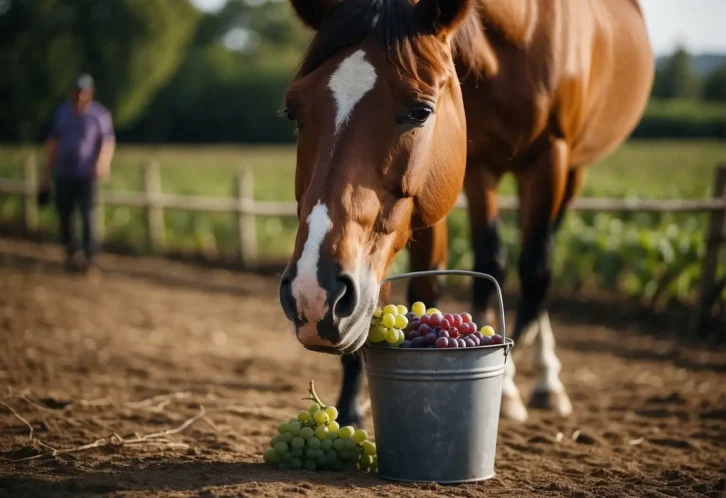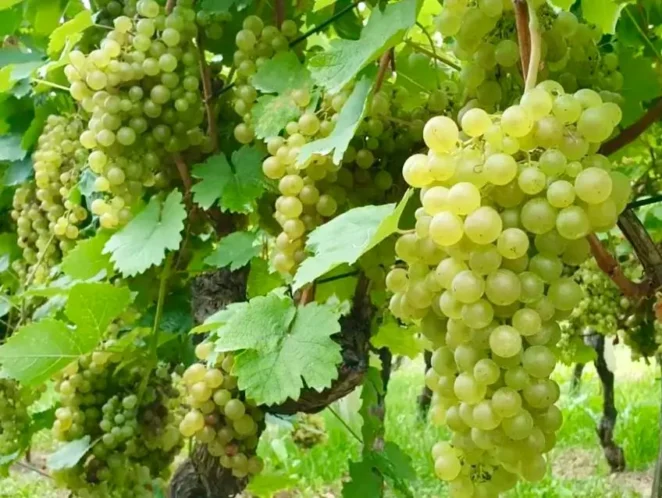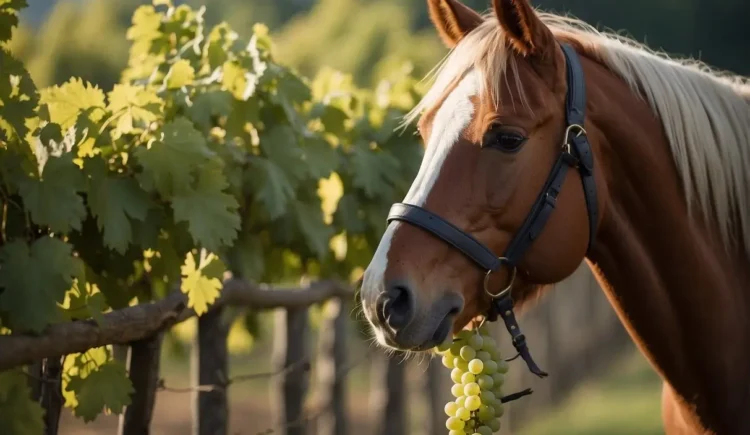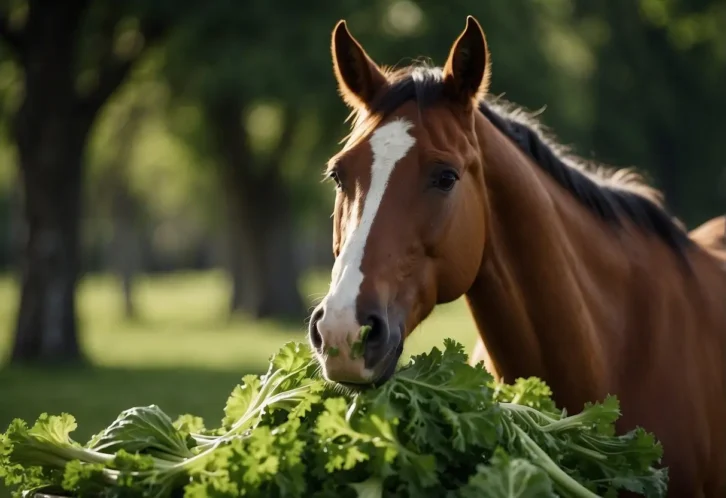Can Horses Eat Grapes? A Veterinarian’s Guide to Safety & Alternatives
Horses are naturally curious creatures, often eager to sample new foods and flavors. As a horse owner, you might wonder if sharing sweet treats like grapes is safe for your equine companion. While grapes might seem like a harmless snack, they can actually pose significant health risks to horses.

Unveiling the Danger: Grape Toxicity in Horses
The most concerning aspect of grapes for horses is their potential toxicity. A substance within grapes can lead to kidney failure in some horses, a condition that can be fatal. The exact cause of this sensitivity remains unknown, making it impossible to predict which horses will be affected.
Recognizing the Signs of Grape Toxicity
If your horse accidentally ingests grapes, it’s crucial to monitor them closely for these signs of toxicity:
- Loss of Appetite: Your horse may refuse food or show disinterest in their usual meals.
- Lethargy: A sudden decrease in energy levels or reluctance to move.
- Increased Thirst and Urination: If you notice your horse drinking and urinating more frequently than usual, it could be a sign of kidney trouble.
- Colic: Abdominal pain in horses, often accompanied by pawing at the ground, rolling, or looking at their flanks.
- Diarrhea: Loose or watery stools can be a symptom of grape toxicity.
- Signs of Kidney Failure: This includes decreased urine output and swelling in the legs.
Immediate Action Is Crucial
If you suspect your horse has consumed grapes and is exhibiting any of these symptoms, contact your veterinarian immediately. Early intervention is vital for a positive outcome in cases of grape toxicity.
Beyond Toxicity: The Hidden Dangers of Grapes

Even if your horse doesn’t experience immediate toxic effects, grapes can still pose risks:
- High Sugar Content: Grapes are high in sugar, which can contribute to obesity, insulin resistance, and laminitis (a painful hoof condition) in horses. This is especially true for horses with metabolic disorders like equine metabolic syndrome (EMS).
- Choking Hazard: Whole grapes, particularly for smaller horses or those who eat quickly, can become lodged in the throat and cause choking.
Nourishing Your Horse with Safer Treats

While grapes are off the menu, there are plenty of other delicious and nutritious treats you can offer your horse:
- Fruits: Apples (without seeds or core) and carrots, cut into bite-sized pieces, are classic favorites.
- Vegetables: Celery, cucumbers, and green beans provide a refreshing, low-sugar crunch.
- Hay Cubes: These offer a satisfying chew and are a good source of fiber.
- Commercial Horse Treats: Look for treats formulated specifically for horses, ideally with your veterinarian’s guidance.
Prioritizing Your Horse’s Well-being
The key to a healthy horse is a balanced diet rich in high-quality hay and a limited amount of treats. When in doubt about a particular food’s safety for your horse, always consult your veterinarian for personalized advice.
FAQs: Your Questions About Grapes and Horses
Can horses eat raisins?
Raisins are dried grapes and pose the same risks as fresh grapes. Avoid feeding them to your horse.
Are grape leaves or vines toxic to horses?
The safety of grape leaves and vines is uncertain, so it’s best to avoid them altogether.
What if my horse accidentally ate a small amount of grapes?
Contact your veterinarian for advice. Even a small amount can be dangerous for some horses.
Remember, your horse’s health is paramount. By understanding the risks associated with grapes and opting for safer alternatives, you can ensure your equine companion enjoys a long, happy, and healthy life.
Want more tips for optimal equine health? Explore our other horse care articles!
Follow AnimalVine on Google News!




